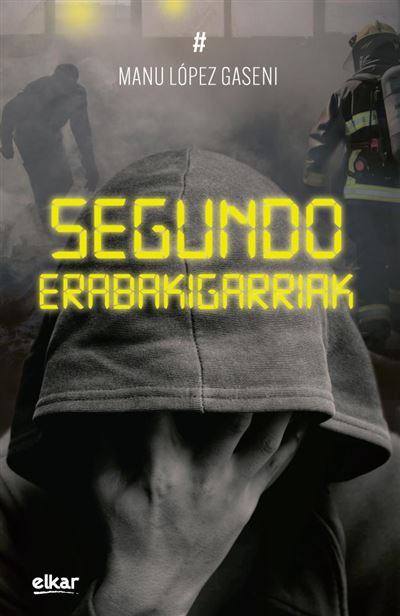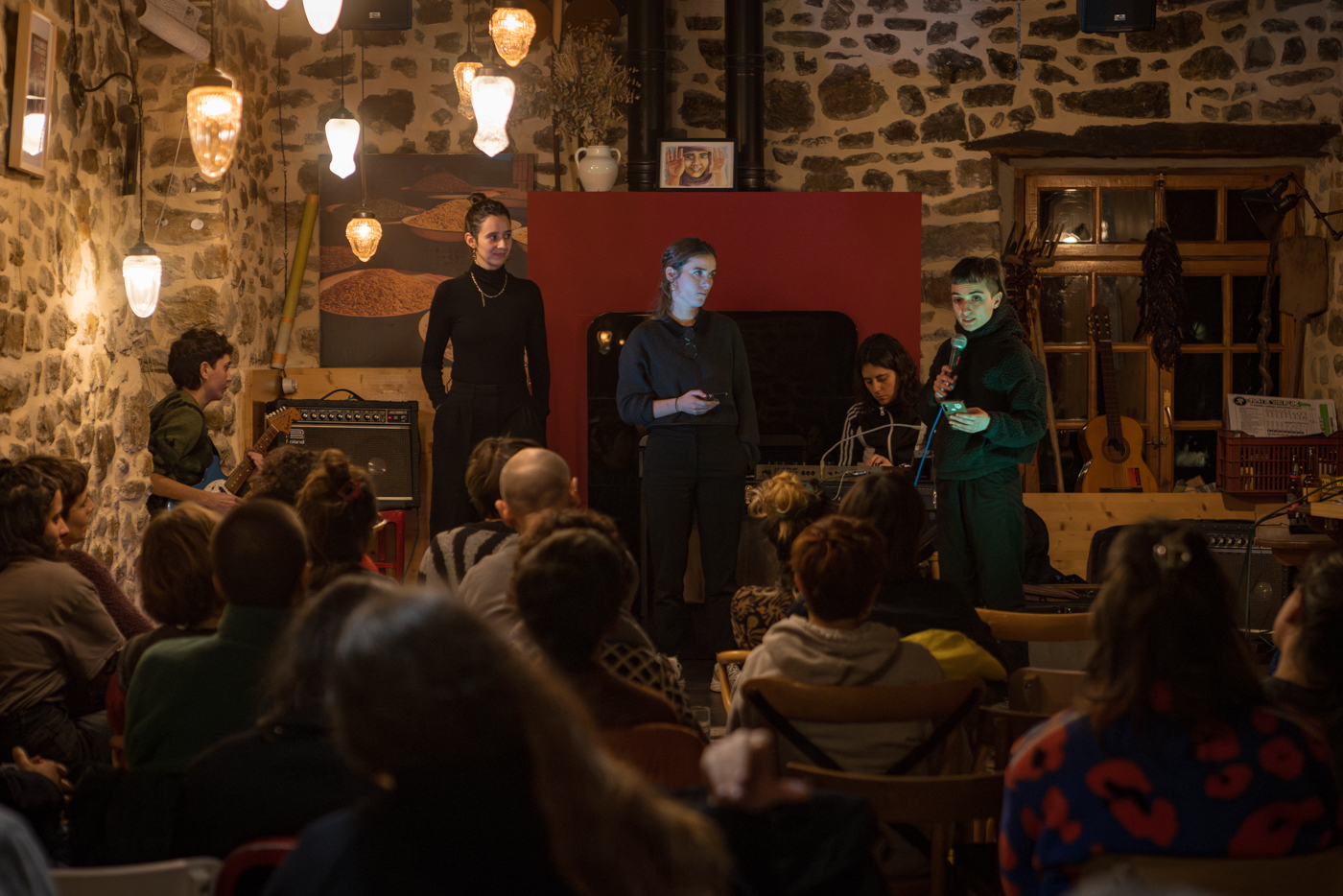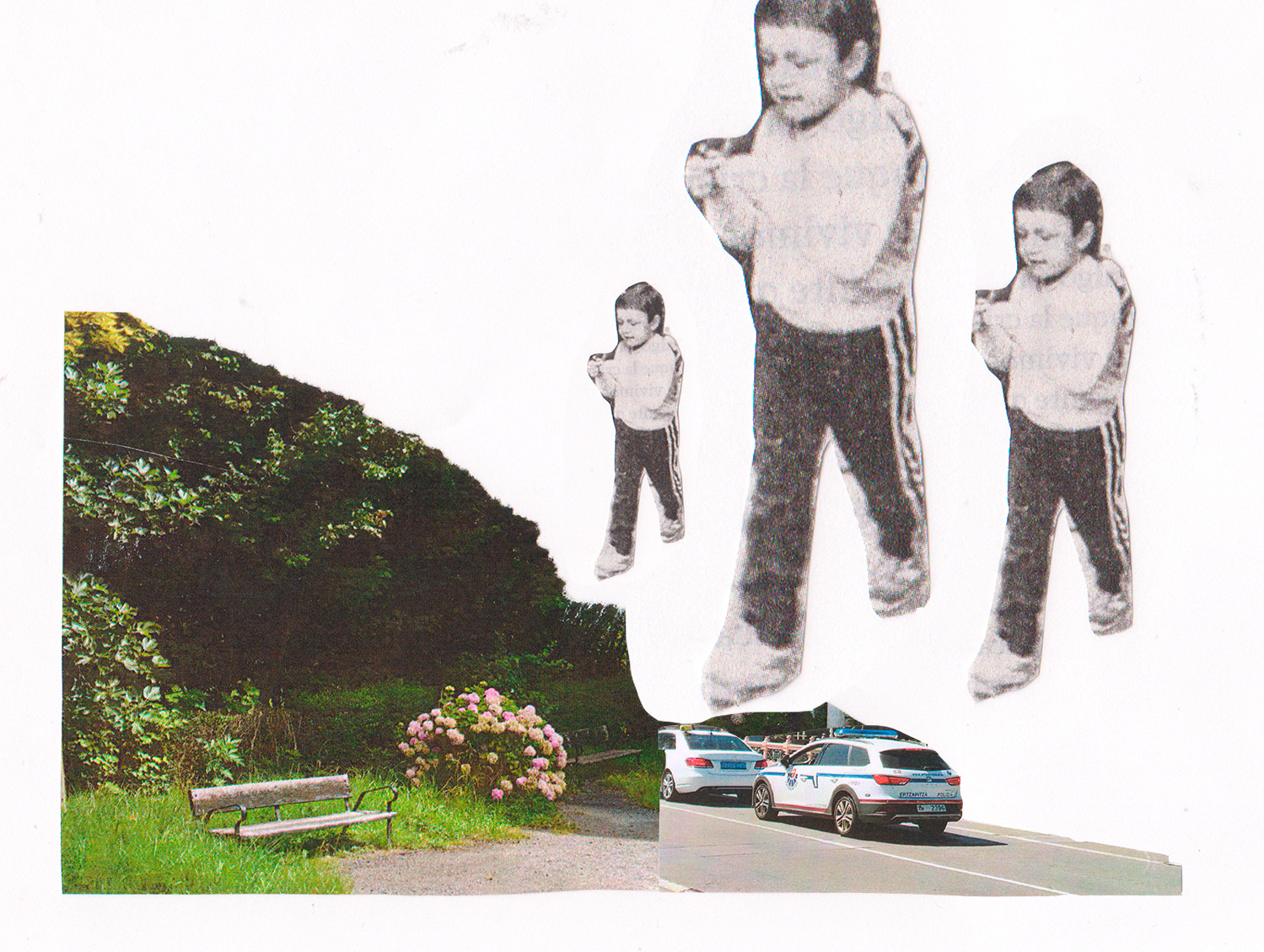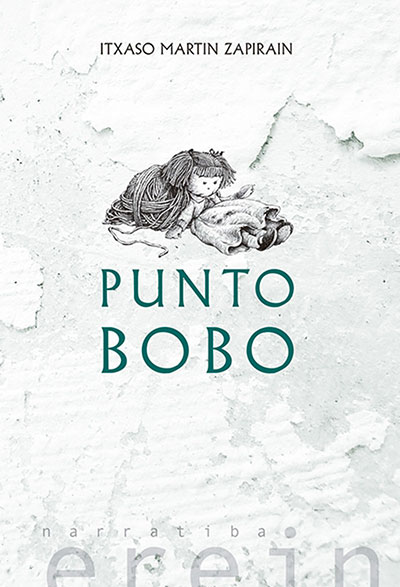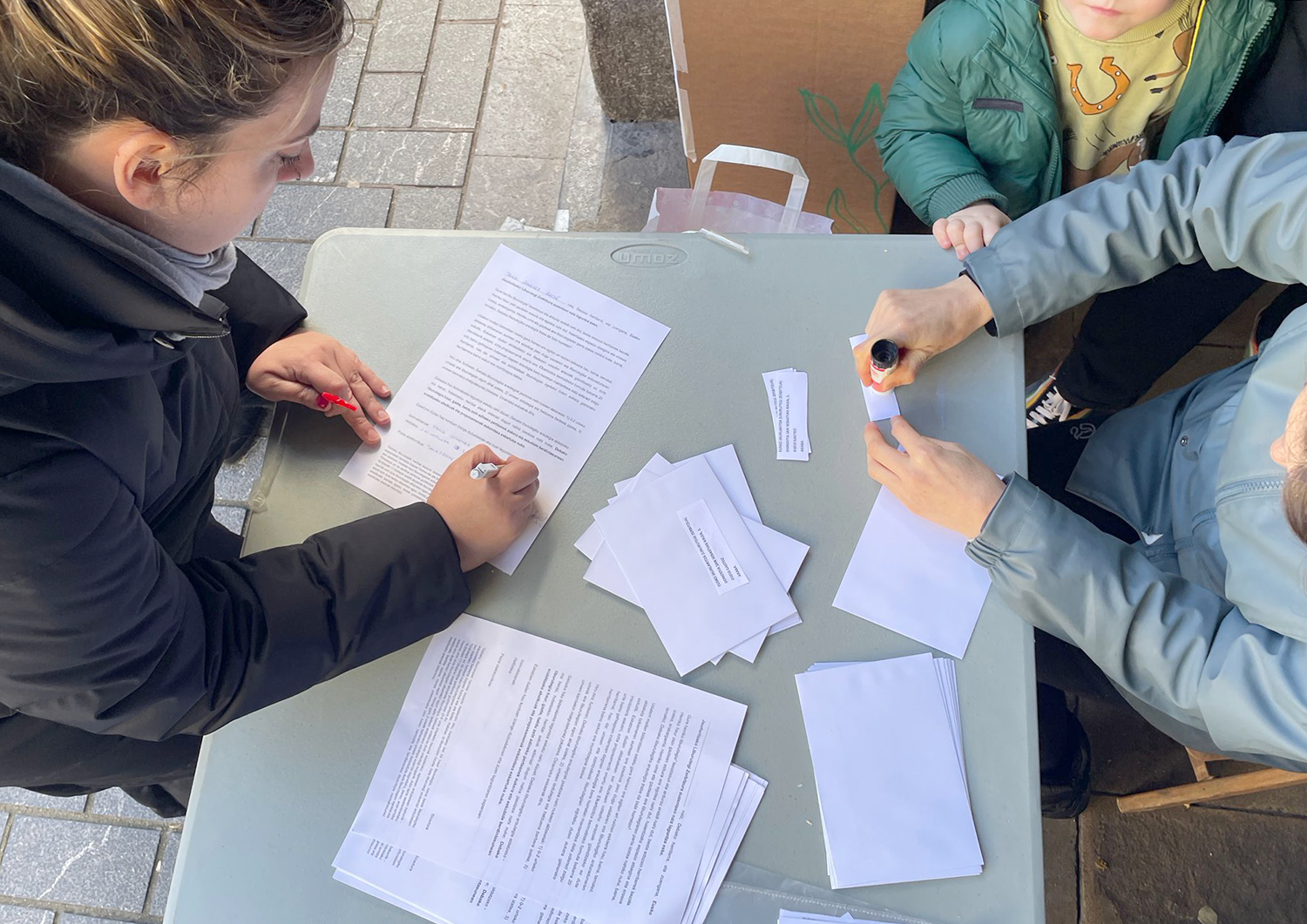"We don't have to make our sexuality visible, but structural violence."
- Cristina Morales went to San Sebastian two weeks ago to give a talk in the summer Mutant Literature course. The theme of the event was perfectly fitting, as in his last novel there are elements that are not traditionally linked to literature, such as fanzines or dance. He has spoken to us clearly and vividly, as he does in his books.
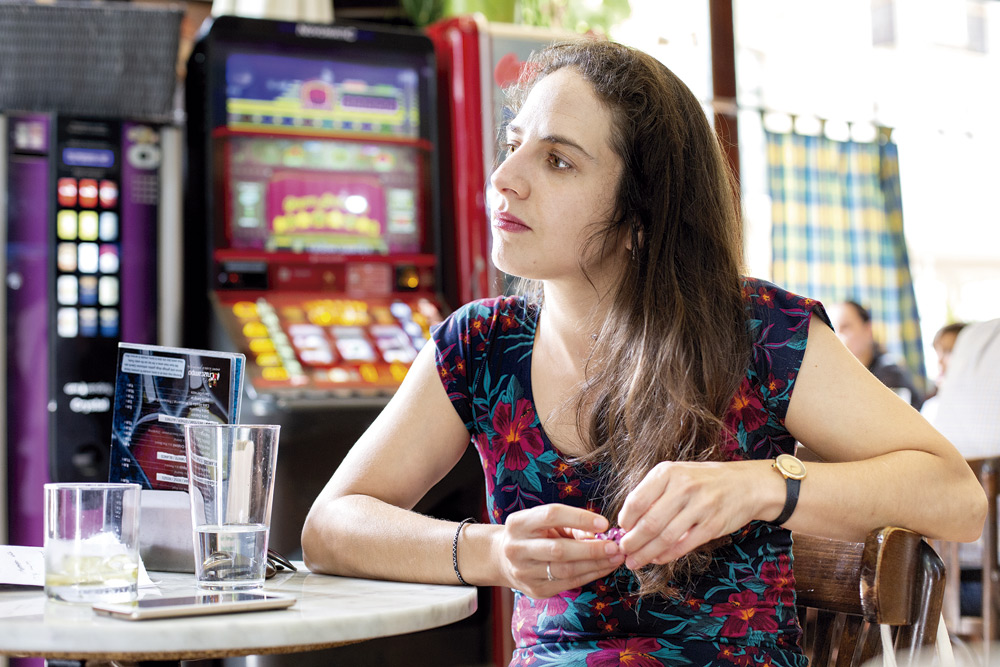
Zientzia politikoak eta Zuzenbidea ikasi zituen, baina idazketari emana bizi da. Lau eleberri eta ipuin-liburu bat idatzi ditu, eta hainbat sari eta beka jaso. Dioenez, nahiago du dantzan egin, idatzi baino, eta Iniciativa Sexual Femenina dantza taldeko kidea da.
I know you thanks to the novel Easy Reading. It has been a great success: You have received the Herralde Prize awarded by the editorial Anagram, and five editions have been published in eight months. The publication process, however, has not been easy.
Editorial Seix Barral made an economic offer to me, and that's why I started writing the book. In the heart of the novel is a fanzine, I, I also want to be a male, and as it is written in the style of the fanzines, I have used collages: I have brought out some texts directly from the media, and I have quoted by names and surnames real people like Juan Soto Ivars, Carolin Emcke and Pablo Pineda. The editorial asked me to change the names, because the criticism of Pineda was very strong, and because they were afraid that they would report us and kidnap the novel. I accepted and renamed him.
But it didn't end there.
No. When the book was about to enter the printing press, the publishers told me that they were completely scared and that I had to remove or rewrite the whole fanzine, and mitigate my harsh criticism of the capazist institutions. I was told that they wanted to support the novel in order to make it as best as possible, but I did not accept their arguments. Then, they told me that after all, the fanzines weren't good literature, and when I stood in front of it, they told me clearly that the novel wouldn't come out unless the fanzine pulled me out. I had only one way out of that censure, so I left the editorial.
But the book finally came out.
Yes, it was very hard for me, but my agent and I went forward and presented to the Herralde Prize. I won and the novel came out as it was, with its fanzine. The truth is that I cut the fanzine a bit, but not for ideological reasons, but because if I put everything in it was going to be a 600-page novel and, if I did, we would have to sell it at EUR 30. And I didn't want books that expensive.
Going back to the beginning, what was the starting point of the novel? What did you want to tell?
A few years ago I was in a space liberated from Barcelona, Can Batllón. There were many industrial ships there to use to my liking, and there I danced, improvised, and I felt terrible freedom. I felt a desire to tell him this freedom.
"Among those considered physically incapable and intellectually incapable, the former can be placed above the latter, as they are capable of acting according to the social code"
Dance is of great importance in the book, and especially the so-called integrated dance.
I knew the integrated dance in Barcelona through courses in civic centers. From the beginning I was very interested in dancing with the heads and non-normative bodies – if the distinction between the head and the body is for something – because it seems to me that it offers us a good opportunity to escape the trilogy that is asked of the dantzaris: beauty, security and fluidity. So I started dancing with very varied people: people with cerebral palsy, people with stroke, people in a wheelchair... Then, besides participating in schools, I started participating in various shows, and so I got to communist dance. Not only are there people who consider themselves incapable – or, in the last euphemism, only people with functional diversity – but in community dance there are everything, for example, children and the elderly, people who have never danced…
It looks like a nice project, but it has made him a tough critique in the book.
Yes, because I saw that in this area, where the cohesive community and society were claimed, the violence of institutional and capitalist spaces was also produced in this area. The young dancers and dancers walking on the two legs were asked to guide us through the old or multiple dancers, to serve as an example, since the movement of such bodies is not like the normative movement of dance. In this logic extreme situations occurred, for example, during the show, people classified as intellectually incapable were locked up in the cameramen, because they were bothered and, for example, when it did not touch them, they entered the stage. This happened with those considered incapable intellectuals, and it should be emphasized, because in the case of people who are said to have a physical disability they are able to enter the code of the discipline. Because choreographies are disciplined things, one commands and the other obeys. When I saw these things, I was scared and I left right away, and that's why I criticized him in the book. It was clear to me that the aim of such projects was not to dance together, but to use people considered incapable of putting someone on the medal of integration.

Four women classified as intellectually incapable star in her book: Nati, Marga, Patri and Angelels. They're cousins who live together on a supervised floor. Everyone has their own style of counting. How did you decide to organize the novel like this?
The novel was born with Nati, and the other three voices I created initially to accompany Nati, so that the speech of Nati could be better entered, because the voice of Nati is very radical, it is always screaming, and although I was very interested, I knew very well that with it I would not get only a cultural product called a novel, which is bourgeois and has very clear boundaries – it has to be legible, among others.
The novel begins a process of sterilization of one of the characters, Marga. This is another topic that goes through the book.
I studied law and political science, and I dedicated myself to recovering some things from the career when writing the novel, for example, I recovered the figure of the incapable, who just taught us, and the subject of compulsory sterilizations also: it is structural violence and, therefore, it is completely invisible. It's curious, because what you want to sterilize is Marga, and precisely that character always follows his desire, lives here and now and seeks pleasure, not conflict. Go with step rinsing, to get whatever you want, but to avoid dissensions. And at a time when he talks to Nati, he says that maybe sterilization isn't that bad, that maybe he can touch the leather without it being understood, and that maybe he can make use of that oppression for his own benefit.
I reflected it because I didn't want to impose any morals. The novel shows that there are people who operate without their consent and we can't agree with it, but I didn't mean sterilization is a bad thing in itself. I did not want to delay sterilization, voluntary sterilization, of course, because I think it is worthy of claim, such as voluntary motherhood. But sterilize someone without permission? This was done by the Nazis and also by the colonizers.
The sexual freedom of people with functional diversity is also a thorny issue that you work on in the book. I was reminded of the documentary by Antonio Centeno and Raúl de la Mora on this subject: Yes we fuck. Have you seen it? What did you think?
I have seen it, yes, and I think it is a work of great value, but I would put some “but” to it. In the world of diversity, the base of the social pyramid is intellectual diversity, and if in a group are the two, considered physically incapable and considered intellectually incapable, the former can be placed above the latter, as they are able to act according to the social code. And in the documentary the same thing happens, those who consider themselves intellectually incapable have much less space, and sometimes, when they talk about their sexuality, the public laughs, because we are not able to assimilate that discourse, because it is not within our usual linguistic code.
The documentary claims the right to sexuality of people with functional diversity, for example, referring to the figure of sex workers, that is, the existence of a sexuality service for these people.
Yes, and I want to put a “but” to that too. The documentary claims this path, and I believe that the directors of the documentary also enthusiastically support it. Sex workers' organizations call it "aseptic sex", and this option makes a further difference between the good slut and the bad slut, as it is not the same that does this kind of work that does around the Camp Nou [stadium of the Barcelona football team]. Within prostitution levels are created, and even some are considered sluts and others are not.
In any case, it seems to me that the documentary is very useful, because it shows a number of structural violence and because it has put on the table debates that until now were not on the table. It is often said, from a positive point of view, that we have to make our activity visible, that we have to make our sexuality visible… I’m sick of that, structural violence must be made visible so that it does not become structural again.

There are no intermediaries in the novel, in the pleasure or in the sexuality of the characters.
No, just in case. Two or three are the ones who make love together. Nati and Ibra also use the tools of the oppressor, the adapted bathroom. Universal adaptation, the universal principle of adaptation and integration, ultimately allows access to non-normative sex. I was interested that the activity between Nati and Ibra was hidden, that is, for them it is not a pride, they have done it, and it is.
The characters in your novel have functional diversity and you don't. There has been a lot of controversy lately about these types of cases. What's your vision?
I have no disability, I am a standardised person and the characters in the novel I have written are not normative. Does that mean that I want to give someone a voice? Of course no, I am no spokesperson for anyone, and to clarify it, I have not interpreted reality, that is, the Nati syndrome does not really exist, and the discourse of the protagonists is also built, it does not look like reality. On the other hand, although I realized nobody’s speech, I do not think it is bad in itself: for example, I have become aware of the social workers’ discourse in the book, I have done so on purpose, because I wanted to highlight the barbarities that social workers do with their prisoners and, as in the speech of the CUP militants, I have realised this in order to do so. But no one doubts that.
In any case, the issue comes from the United States. There, if a white writer creates black or maric characters, there's a very strong movement against that, which says that that white writer is taking the voice of blacks and marics.
And what does this movement look like?
Totally perverse. To begin with, according to this perspective, literature goes to the devil at once. That does not seem bad to me, we can send literature to shit, but this does seem terrible to me: according to that point of view, the only interest of literature written by Marik or by blacks is to tell their identity position, that is, to tell the world from its subordinate. Thus, this approach perpetuates the subaltern position of the subaltern. Black may want to write about the wars of Napoleon or about Sophocles, you know!
He says he likes to dance more than writing. You are a member of the Women's Sexual Initiative.
The group is made up of three dantzaris, we're normalized dancers, but we're looking for desnormalization. It's a relatively new group, and we've made just one piece. Catalina. The truth is that it's very much related to the novel Easy Reading. In one scene, Marga is going to put the table, and as he does, the edge of the table gets on the sidewall and starts to masturbate. So the three members of the group started working on it. It is thought that people with intellectual disabilities are especially obscene, especially sexual, even in the case of men it is believed that they are rapists, that they are not able to control their sexual passion; then we, instead of normalizing that super sexualized subject, decided to go through a process of super sexualization, that has value in the piece, that is not something null and, therefore, we rub ourselves against the table.
Are you showing that piece?
Yes, it would be great to be able to come to Euskal Herria. The next event will be held in Terrassa, on September 28, at the TNT festival. You are invited.
Rosvita. Teatro-lanak
Enara San Juan Manso
UEU / EHU, 2024
Enara San Juanek UEUrekin latinetik euskarara ekarri ditu X. mendeko moja alemana zen Rosvitaren teatro-lanak. Gandersheimeko abadian bizi zen idazlea zen... [+]
Idazketa labana bat da
Annie Ernaux
Itzulpena: Leire Lakasta
Katakrak, 2024
Decisive seconds
Manu López Gaseni
Beste, 2024
--------------------------------------------------
You start reading this short novel and you feel trapped, and in that it has to do with the intense and fast pace set by the writer. In the first ten pages we will find out... [+]
Istorioetan murgildu eta munduak eraikitzea gustuko du Iosune de Goñi García argazkilari, idazle eta itzultzaileak (Burlata, Nafarroa, 1993). Zaurietatik, gorputzetik eta minetik sortzen du askotan. Desgaitua eta gaixo kronikoa da, eta artea erabiltzen du... [+]
When the dragon swallowed the
sun Aksinja Kermauner
Alberdania, 2024
-------------------------------------------------------
Dozens of books have been written by Slovenian writer Aksinja Kermauner. This is the first published in Basque, translated by Patxi Zubizarreta... [+]
Sometimes I don't know if it's too much. That we're eating a pipe, that we're talking about anything else, that we're bringing it up. We like to speak aloud, to leave almost no pause, to cover the voices, to throw a bigger one. Talk about each one of them, each one of them, what we... [+]
Puntobobo
Itxaso Martin Zapirain
Sowing, 2024
----------------------------------------------------
The title and cover image (Puntobobo, Wool Bite and Rag Doll) will suggest mental health, making the point and childhood, but more patches will be rolled up as the book... [+]
Party and recreation. Oral History of Rock Radical Vasco
Javier 'Jerry' Corral
Books, 2025
------------------------------------------------
Javier Corral ‘Jerry’ was a student of the first Journalism Promotion of the UPV, along with many other well-known names who have... [+]
Itsasoa bete urre
Dani Martirena
Irudiak: Ana Ibañez
Txalaparta, 2022
--------------------------------------------
Liburu honetara barneratzen den irakurleak sentsazio ugari izango ditu. Deigarria da azaleko letren urre kolorea eta zuritasuna, goialdean ageri den... [+]













